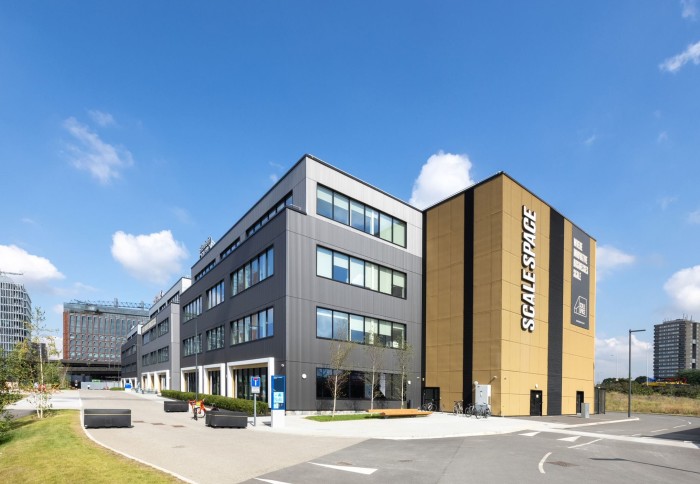Imperial launches new Impact Fellowship programme
by Pete Ford

Imperial Policy Forum has launched a new Fellowship for civil servants. Fellows will work on policy challenges with support from Imperial academics.
The first cohort of Fellows, from the Department for Energy Security and Net Zero (ES-NZ) and the Department for Levelling Up, Housing and Communities (DLUHC) heard talks from Professor Mary Ryan, Professor Ramana Nanda and Professor Nilay Shah, as well as lab tour start-up Puraffinity. The launch took place at Scalespace at Imperial's White City campus.
The Fellowship will strengthen connections between Imperial academics and senior policymakers working on some of the most pressing challenges we face. In their departments, the Fellows lead on of policy areas crucial to achieving the UK’s net zero ambitions – including the role hydrogen and nuclear need to play in a low carbon economy, and the decarbonising of significant parts of the housing stock and public sector.
importance of investment and systems
Fellows heard from Professor Nanda about the challenge in derisking the technologies needed in order to achieve net zero targets and how unlocking capital investment for early stage research would have a crucial role to play in demonstrating and deploying technologies we need. The recent launch of the Institute for Deep Tech Entrepreneurship, led by Professor Ramana, seeks to address this challenge.
Professor Shah told Fellows that a systems engineering approach to net zero was the only way to avoid siloed implementation of net zero policy. Imperial’s Transition to Zero Pollution initiative brings together thinking on future business models, industrial systems and technologies in order to imagine solutions to the myriad of challenges associated with climate change and biodiversity loss. Sharing this holistic, systems-level thinking with those designing and implementing government policy is one of the main aims of the Fellowship.
Fellows will now work closely with their academic mentor to gain a deeper understanding of the latest evidence and get new perspectives on how the policy change we need to see can be designed and delivered. The programme will run until the end of April, with future cohorts of Fellows planned for the next academic year.
You can read more about the Imperial Impact Fellowships here or contact Pete Ford at p.ford@imperial.ac.uk.
Article text (excluding photos or graphics) © Imperial College London.
Photos and graphics subject to third party copyright used with permission or © Imperial College London.
Reporter
Pete Ford
College Headquarters